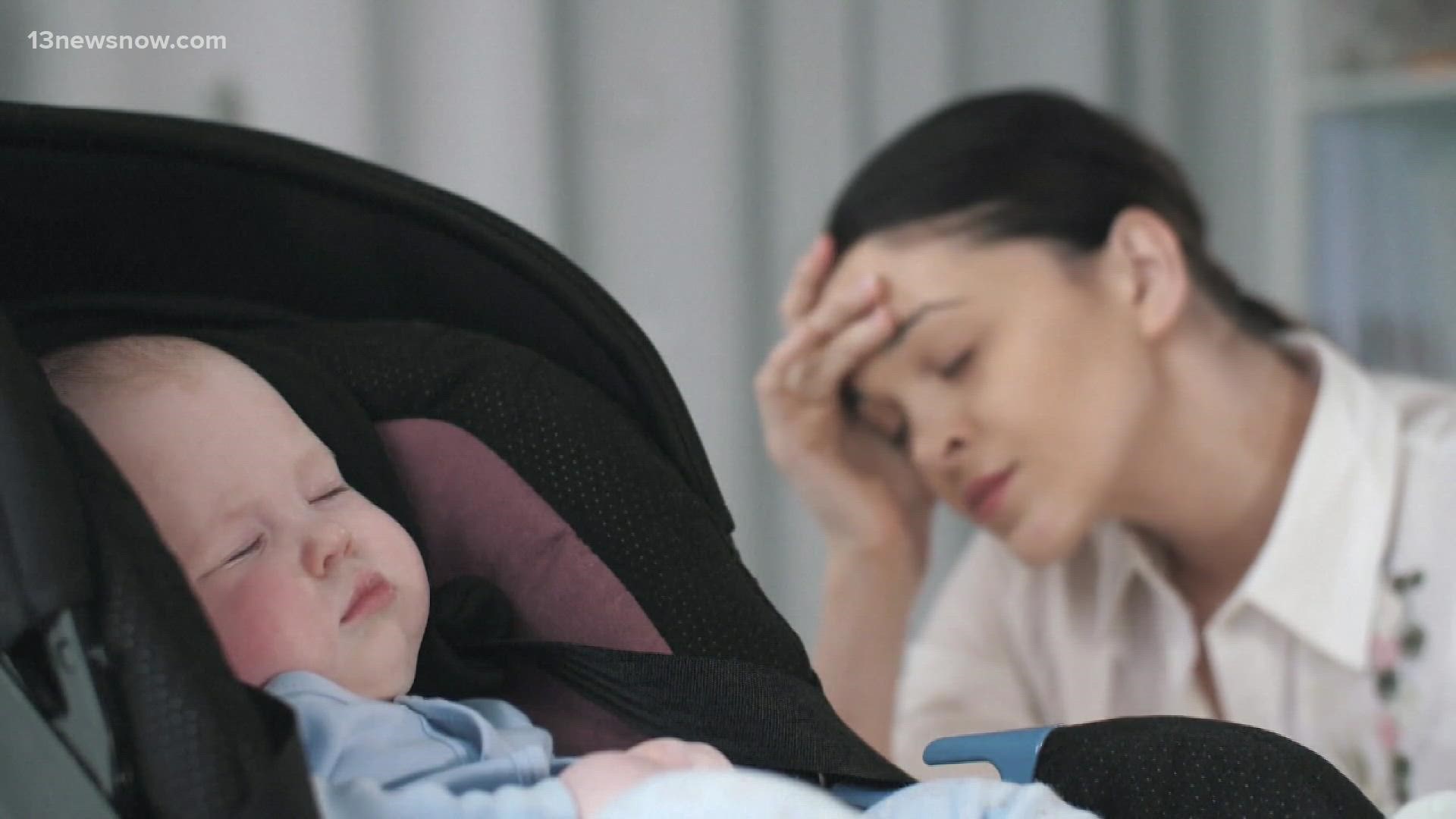CHESAPEAKE, Va. — Postpartum psychosis is an illness now in the spotlight after police say a Massachusetts woman allegedly killed her three young children.
While postpartum psychosis is lesser-known than postpartum depression, psychiatric nurse practitioner Dr. Michele Davidson said it impacts more new moms than people think.
“It does occur in one to two out of 1,000 births,” Dr. Davidson said. “Which doesn’t seem like a lot... but in 2021, there were 3.6 million births. There were 3,600 people plus families, infants, and children affected by it.”
Dr. Davidson said psychosis differs from postpartum depression because moms experience a break from reality.
“They can have hallucinations, delusions, mania. They cannot sleep, have alterations in mood,” Davidson said.
The illness recently made headlines last month, when investigators in Massachusetts said Lindsay Clancy allegedly strangled her three young children to death, before trying to kill herself.
ABC News reports Clancy’s attorney said she may have had psychosis.
“Postpartum psychosis can occur anytime in the first year following childbirth,” Davidson said.
Dr. Davidson has treated women with the illness and said every patient needs immediate medical attention.
“With psychosis, you need a mood stabilizer and anti-psychotic medication right away,” Davidson said. “In fact, a lot of people will go to their OBGYNS and unknowingly get put on antidepressants; antidepressants can actually induce a worse mania.”
She said there are warning signs before a break from reality occurs.
“If you have someone who is not sleeping, acting paranoid, hearing voices,” Davidson said. “If you have someone whose cognitive cloudiness or has general confusion, just not acting like themselves, those are all warning signs that have to be evaluated.”
She urges women to seek help at the first signs of trouble.
“Unfortunately, with postpartum psychosis, there is a 4% infanticide rate and a 5% suicide rate,” Davidson said. “So this info, getting it out, can save lives.”
She said postpartum depression is also extremely serious. She said any women who are experiencing sadness and lack of interest that persists past two weeks should seek treatment.
If you or someone you know needs support, Postpartum Support Virginia and Postpartum Support International have someone available to talk around the clock. There is also a National Maternal Mental Health hotline at 1-833-943-4773.

